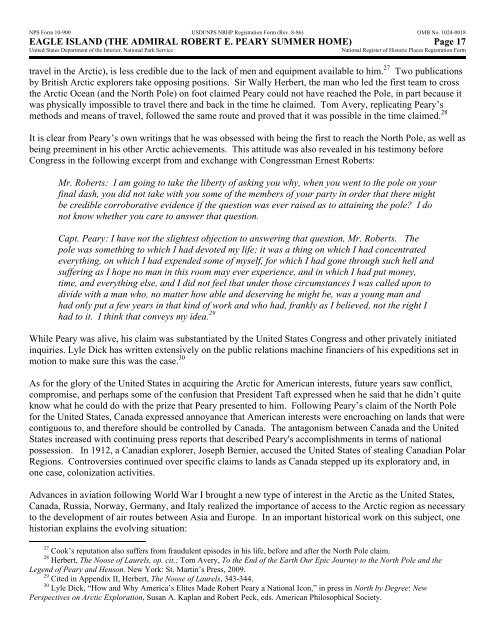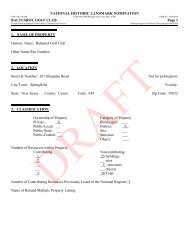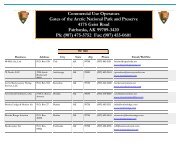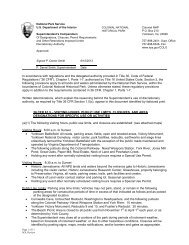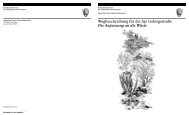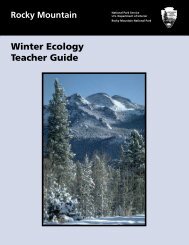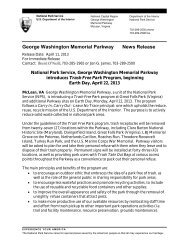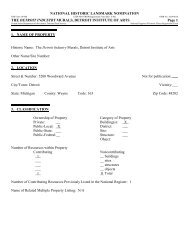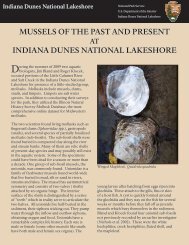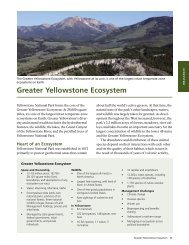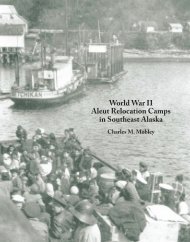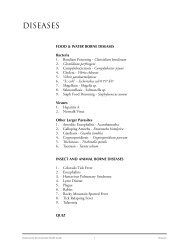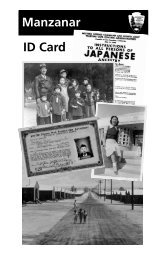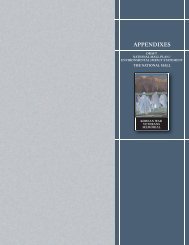Nomination - National Park Service
Nomination - National Park Service
Nomination - National Park Service
You also want an ePaper? Increase the reach of your titles
YUMPU automatically turns print PDFs into web optimized ePapers that Google loves.
NPS Form 10-900 USDI/NPS NRHP Registration Form (Rev. 8-86) OMB No. 1024-0018<br />
EAGLE ISLAND (THE ADMIRAL ROBERT E. PEARY SUMMER HOME) Page 17<br />
United States Department of the Interior, <strong>National</strong> <strong>Park</strong> <strong>Service</strong><br />
<strong>National</strong> Register of Historic Places Registration Form<br />
travel in the Arctic), is less credible due to the lack of men and equipment available to him. 27 Two publications<br />
by British Arctic explorers take opposing positions. Sir Wally Herbert, the man who led the first team to cross<br />
the Arctic Ocean (and the North Pole) on foot claimed Peary could not have reached the Pole, in part because it<br />
was physically impossible to travel there and back in the time he claimed. Tom Avery, replicating Peary’s<br />
methods and means of travel, followed the same route and proved that it was possible in the time claimed. 28<br />
It is clear from Peary’s own writings that he was obsessed with being the first to reach the North Pole, as well as<br />
being preeminent in his other Arctic achievements. This attitude was also revealed in his testimony before<br />
Congress in the following excerpt from and exchange with Congressman Ernest Roberts:<br />
Mr. Roberts: I am going to take the liberty of asking you why, when you went to the pole on your<br />
final dash, you did not take with you some of the members of your party in order that there might<br />
be credible corroborative evidence if the question was ever raised as to attaining the pole? I do<br />
not know whether you care to answer that question.<br />
Capt. Peary: I have not the slightest objection to answering that question, Mr. Roberts. The<br />
pole was something to which I had devoted my life; it was a thing on which I had concentrated<br />
everything, on which I had expended some of myself, for which I had gone through such hell and<br />
suffering as I hope no man in this room may ever experience, and in which I had put money,<br />
time, and everything else, and I did not feel that under those circumstances I was called upon to<br />
divide with a man who, no matter how able and deserving he might be, was a young man and<br />
had only put a few years in that kind of work and who had, frankly as I believed, not the right I<br />
had to it. I think that conveys my idea. 29<br />
While Peary was alive, his claim was substantiated by the United States Congress and other privately initiated<br />
inquiries. Lyle Dick has written extensively on the public relations machine financiers of his expeditions set in<br />
motion to make sure this was the case. 30<br />
As for the glory of the United States in acquiring the Arctic for American interests, future years saw conflict,<br />
compromise, and perhaps some of the confusion that President Taft expressed when he said that he didn’t quite<br />
know what he could do with the prize that Peary presented to him. Following Peary’s claim of the North Pole<br />
for the United States, Canada expressed annoyance that American interests were encroaching on lands that were<br />
contiguous to, and therefore should be controlled by Canada. The antagonism between Canada and the United<br />
States increased with continuing press reports that described Peary's accomplishments in terms of national<br />
possession. In 1912, a Canadian explorer, Joseph Bernier, accused the United States of stealing Canadian Polar<br />
Regions. Controversies continued over specific claims to lands as Canada stepped up its exploratory and, in<br />
one case, colonization activities.<br />
Advances in aviation following World War I brought a new type of interest in the Arctic as the United States,<br />
Canada, Russia, Norway, Germany, and Italy realized the importance of access to the Arctic region as necessary<br />
to the development of air routes between Asia and Europe. In an important historical work on this subject, one<br />
historian explains the evolving situation:<br />
27 Cook’s reputation also suffers from fraudulent episodes in his life, before and after the North Pole claim.<br />
28 Herbert, The Noose of Laurels, op. cit.; Tom Avery, To the End of the Earth Our Epic Journey to the North Pole and the<br />
Legend of Peary and Henson. New York: St. Martin’s Press, 2009.<br />
29 Cited in Appendix II, Herbert, The Noose of Laurels, 343-344.<br />
30 Lyle Dick, “How and Why America’s Elites Made Robert Peary a <strong>National</strong> Icon,” in press in North by Degree: New<br />
Perspectives on Arctic Exploration, Susan A. Kaplan and Robert Peck, eds. American Philosophical Society.


